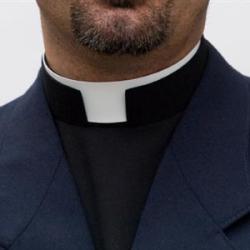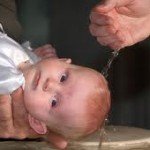I got a recent comment on an old post which I felt was worth responding to with a new post because these are some very commonly asked questions:
1) You said one can be justified by faith alone without needing to be baptize (at least in some special cases). Can you provide instances of these?
The typical response to this question is to point to the thief on the cross. Clearly the thief on the cross did not have the opportunity to accept baptism but was received into paradise regardless. This is the only case I can think of, because all others who become believers in the New Testament have the opportunity to receive baptism. True faith will always result in baptism. Luther says that it is not the lack of baptism that damns but the rejection of it. Baptism is the ordinary means of regeneration but not the only means.
2) Can you please enumerate, based on what Luther taught, the benefit(s) of baptism for adults who have already come to faith in Christ?
This is a somewhat complex question. For Luther, everyone in Germany was baptized as an infant. He didn’t face the question in the same way we do today. The Lutheran scholastic tradition is somewhat muddled on this question as well, sometimes seeming to promote baptismal regeneration for infants only, and baptism as a sign and assurance of faith for others. This is one of Charles Hodge’s main arguments against a Lutheran view of baptismal regeneration, because it has no clear doctrine of baptism for both infants and believers. I would say, in response to this question, that baptism gives the gospel promise in a concrete way for the believer, seals him with the Holy Spirit, and brings the forgiveness of sins. These things are present through the word but are sealed, confirmed, and strengthened through baptism. It seems clear in the book of Acts, and of the way Paul speaks of baptism, that the presence of the Spirit becomes greater through baptism. He is present in a way he is not beforehand.
I also think that one can speak of regeneration as more than a one time act. Luther speaks of the Christian life as continual repentance and renewal. Thus I think it is valid to say that one was both regenerated through the word, and through baptism (which also is accompanied by the word).
3) Again, with regards to those who have trusted in Christ for Salvation and are not yet baptized, are they saved already, or not yet until they are baptized?
They are saved through the word, which is also a means of regeneration. However, they should not neglect the great benefits given through baptism which does not then become a mere symbol.
4) Do Lutherans believe in mortal sin?
Yes. We don’t have a list of sins that are mortal, or believe that the believer is constantly falling out of a state of grace. However, continual unrepentant sin can drive away the Spirit and cause the loss of faith. This does not have to be then remedied through satisfaction or works of penance, but is forgiven when one trusts in the gospel promise. The Lutheran fathers do use the language of mortal and venial sin, but not in the Roman Catholic sense.
5) What is Absolution?
Absolution is a proclamation of the Pastor that he forgives all of our sins for the sake of Christ. This is often called the “office of the keys” and is based on Jesus’ words in Matthew 16 and John 20, that whatever sins are forgiven by the disciples are also forgiven in heaven. The words of the pastor become the words of Christ, as through human words, God conveys the benefits of the gospel. This is often called by Lutherans a third sacrament.
6) I was baptized in a Baptist church (which holds that baptism is a mere profession of faith). Does Lutherans accept my baptism as valid?
The validity of baptism depends on God’s word and promise, not on the faith or life of the minister. This was defended by St. Augustine against the Donatists who held that an unholy man’s baptism was invalid. As long as the word was present, and the Triune name invoked, your baptism is valid.















